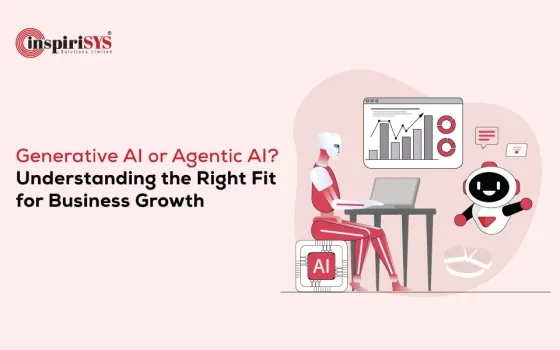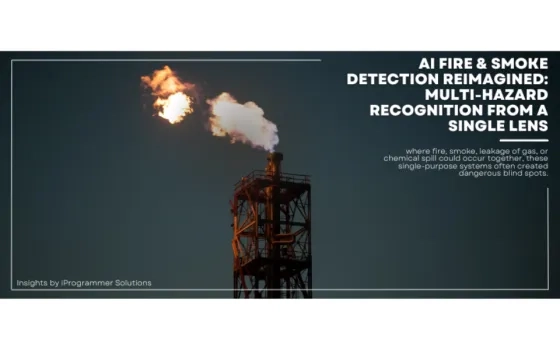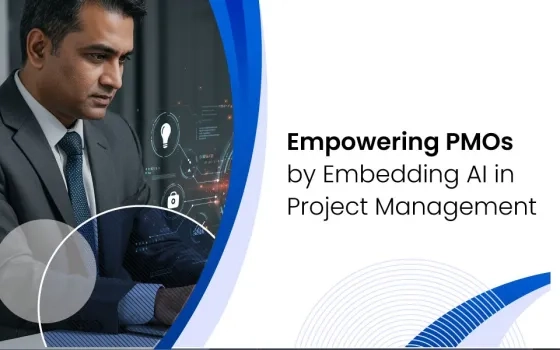In 2025, the sales landscape has undergone a profound transformation, and at the heart of this evolution lies Generative AI. No longer a futuristic concept, generative AI has emerged as a pivotal tool for modern sales teams, reshaping everything from lead generation to customer engagement, personalization, forecasting, and beyond. As the global market becomes increasingly competitive and data-driven, integrating generative AI into sales strategies is no longer optional it's a necessity.
What is Generative AI in Sales?
Generative AI refers to AI models that can create content, make decisions, or simulate human-like thinking using deep learning techniques. In the sales context, generative AI can:
-
Generate personalized emails and sales pitches
-
Suggest optimized pricing models
-
Create customer personas
-
Simulate conversations for training
-
Forecast trends and customer behavior
-
Automate CRM entries and follow-ups
These capabilities make it an indispensable asset for any sales team aiming for efficiency, personalization, and conversion success in 2025.
The Evolution of Sales: From Manual to AI-Driven
Before diving deeper, it’s essential to understand how sales has evolved:
-
Pre-2010s: Sales were largely manual and relationship-based. Reps relied on intuition, cold calling, and face-to-face meetings.
-
2010-2020: The rise of CRM tools and digital communication introduced automation and data analytics into the mix.
-
2020-2024: AI tools began assisting sales professionals in basic automation — chatbots, lead scoring, and analytics dashboards.
-
2025: Generative AI takes center stage — not just assisting, but collaborating and co-creating alongside human teams.
This transition to generative AI is driven by the need for hyper-personalization, real-time responsiveness, and predictive selling.
Top Reasons Why Generative AI Is Critical for Sales in 2025
1. Hyper-Personalization at Scale
Customers in 2025 expect personalized communication tailored to their specific needs, behavior, and preferences. Generic outreach simply doesn't cut it anymore.
Generative AI enables sales teams to:
-
Create dynamic, personalized email and message templates in seconds
-
Craft content based on a lead's browsing behavior, demographic data, and purchase history
-
Generate tailored product recommendations for different customer segments
This level of personalization, previously impossible at scale, leads to higher open rates, engagement, and ultimately, conversions.
2. Lead Generation and Qualification Automation
Generative AI can actively participate in the lead generation process by:
-
Scanning public data, social media, and websites to identify potential leads
-
Analyzing interaction history to score and qualify leads automatically
-
Creating compelling outreach messages to engage with leads instantly
This reduces the sales cycle significantly and ensures reps spend time only on leads with the highest conversion potential.
3. Smarter Sales Forecasting
Forecasting in traditional sales strategies often relies on static data and human estimations, which are prone to bias and inaccuracy.
Generative AI uses advanced algorithms to:
-
Analyze real-time market conditions, customer behavior, and economic trends
-
Predict purchasing behavior and sales outcomes
-
Suggest the best times to reach out or close deals
Accurate forecasting empowers sales leaders to make proactive decisions and allocate resources effectively.
4. Sales Rep Augmentation, Not Replacement
Contrary to the fear that AI will replace jobs, generative AI in sales augments human abilities. It acts as a digital copilot, empowering reps to focus on relationship-building and strategic thinking while the AI handles routine tasks.
Some key applications include:
-
Drafting customized follow-up emails
-
Summarizing meeting notes and updating CRM entries
-
Preparing reports and competitor analysis
-
Recommending talking points based on a prospect’s profile
With generative AI, sales reps become more productive and close more deals with less effort.
5. Intelligent Customer Insights
Understanding the customer is at the core of successful selling. Generative AI offers deep insights by:
-
Mining customer conversations for sentiment analysis
-
Identifying hidden patterns in customer behavior
-
Recommending new cross-sell and upsell opportunities
AI-driven insights enable personalized, timely, and value-based selling.
6. Accelerated Sales Training and Onboarding
Generative AI can simulate sales conversations, providing interactive training environments for new hires. This includes:
-
Role-playing scenarios with virtual prospects
-
Personalized coaching based on rep performance
-
Generating learning materials tailored to an individual's strengths and weaknesses
This shortens onboarding time and ensures reps are equipped with the skills to succeed from day one.
7. Content Creation for Sales Enablement
Sales enablement teams spend considerable time creating decks, brochures, and battle cards.
With generative AI, this process is streamlined:
-
Instantly generate case studies and customer success stories
-
Create pitch decks aligned with specific industries
-
Produce knowledge base articles and training material
This allows sales reps to always have the right content at the right time.
8. Enhanced Collaboration Across Teams
Generative AI breaks silos between marketing, sales, and customer success by:
-
Providing unified data insights accessible to all stakeholders
-
Automatically sharing feedback loops from sales conversations with marketing
-
Assisting in aligning product messaging based on customer conversations
Such cross-functional collaboration ensures a consistent customer experience and improved internal efficiency.
Real-World Applications of Generative AI in Sales (2025 Case Studies)
1. Salesforce Einstein GPT
Salesforce has integrated generative AI into its CRM ecosystem. Reps can now:
It increases productivity while maintaining a human touch.
2. HubSpot AI Assistants
HubSpot’s generative AI tools help:
These tools reduce ramp-up time and ensure higher engagement.
3. Outreach.io with Generative AI
Outreach’s platform uses generative AI to:
It leads to a smarter cadence strategy and more closed deals.
Key Metrics Impacted by Generative AI
Companies that have adopted generative AI in their sales strategies report:
-
30-50% increase in lead conversion rates
-
20-40% reduction in sales cycle time
-
60% improvement in sales rep productivity
-
25% higher customer retention rates
-
Up to 90% time savings on administrative tasks
These metrics underline the tangible value generative AI brings to sales.
Challenges and Considerations
While the benefits are substantial, businesses should also be aware of potential challenges:
-
Data Privacy: Ensure AI tools comply with GDPR, CCPA, and other privacy regulations.
-
Bias and Accuracy: AI must be trained on diverse data to avoid biased outputs.
-
Human Oversight: AI-generated content should always be reviewed by humans to maintain brand consistency.
-
Integration Complexity: Ensure seamless integration with existing tools and workflows.
Addressing these challenges proactively can pave the way for successful implementation.
How to Integrate Generative AI into Your Sales Strategy
To fully leverage generative AI, follow these steps:
-
Audit Current Sales Processes: Identify repetitive tasks and areas where AI can provide value.
-
Choose the Right Tools: Opt for AI platforms that integrate with your CRM and communication systems.
-
Train Your Team: Ensure your reps are comfortable using AI tools and understand their benefits.
-
Monitor and Optimize: Regularly evaluate performance metrics and refine your approach.
The Future of Sales Is AI-Driven
By 2025, companies not using generative AI in their sales strategies risk falling behind. AI doesn't just enhance sales — it transforms the way teams operate, decisions are made, and relationships are built. From deeper insights to faster execution and smarter engagement, the benefits are too significant to ignore.
Those who adapt now will lead the market. Those who wait may struggle to catch up.
Conclusion
Generative AI is no longer a "nice-to-have" for sales teams — it's a must-have. In 2025, it empowers businesses to operate faster, smarter, and more personally than ever before. It enhances human potential rather than replacing it, offering a competitive advantage to those who embrace it.
To future-proof your sales strategy, start integrating generative AI today. The future of sales is here — and it’s powered by intelligent automation, human creativity, and machine collaboration.




















